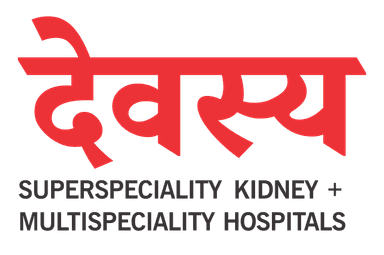Nephrotic Syndrome Treatments & Surgery
How Devasya Hospital Helps to Cure Nephrotic Syndrome?
Devasya Hospital provides comprehensive care for nephrotic syndrome, offering specialized treatments that encompass various aspects of this condition. Devasya Hospital, being the best hospital for nephrotic syndrome treatment, prioritizes accurate diagnosis through renal biopsy. This procedure helps in precisely identifying the root cause of nephrotic syndrome, whether it's minimal change disease, membranous nephropathy, focal segmental glomerulosclerosis (FSGS), or another underlying condition. This exact diagnosis is crucial in tailoring the most effective treatment plan.
The hospital employs a multidisciplinary team of nephrologists, urologists, specialized nurses, and other healthcare professionals. This collaborative approach ensures comprehensive care, with each specialist contributing their expertise to craft personalized treatment strategies.
Devasya Hospital utilizes a range of medications and therapeutic interventions to manage nephrotic syndrome. This might include corticosteroids, immunosuppressants, ACE inhibitors, ARBs, diuretics, and other drugs, as deemed necessary based on the patient's specific condition.
FAQs
Nephrotic syndrome is a kidney disorder marked by elevated protein levels in urine (proteinuria), decreased protein levels in the blood, high cholesterol, and swelling (edema). It originates from damage to the kidney's small blood vessel clusters responsible for filtering waste and excess fluids from the blood.
Multiple factors can lead to nephrotic syndrome. Common causes encompass conditions like minimal change disease (predominant in children), focal segmental glomerulosclerosis (FSGS) characterized by kidney filtering unit scarring, membranous nephropathy causing thickening of the glomerular membrane, diabetic nephropathy triggered by diabetes-related kidney damage, and systemic lupus erythematosus (SLE), an autoimmune ailment affecting the kidneys.
Diagnosing nephrotic syndrome often involves:
- Urinalysis: To detect heightened protein levels.
- Blood Tests: Measuring protein, cholesterol, and creatinine levels.
- Renal Biopsy: Extracting a small kidney tissue sample for microscopic analysis.
Common symptoms include swelling, notably around the eyes, feet, and ankles, frothy or foamy urine due to increased protein, fatigue, and loss of appetite.
omplications might encompass:
- Blood Clots: Elevated risk due to the loss of specific proteins in urine.
- Infections: Greater vulnerability due to reduced immunity.
- High Cholesterol and Cardiovascular Issues: Augmented risk of heart disease owing to increased cholesterol levels.
- Acute Kidney Injury: Severe cases might lead to sudden kidney failure.
Prevention often involves managing underlying conditions like diabetes or high blood pressure to prevent kidney damage. Maintaining a balanced diet, regular exercise, and moderating salt and fat intake can significantly reduce the risk and impact of nephrotic syndrome. Regular medical check-ups aid in monitoring kidney health.



